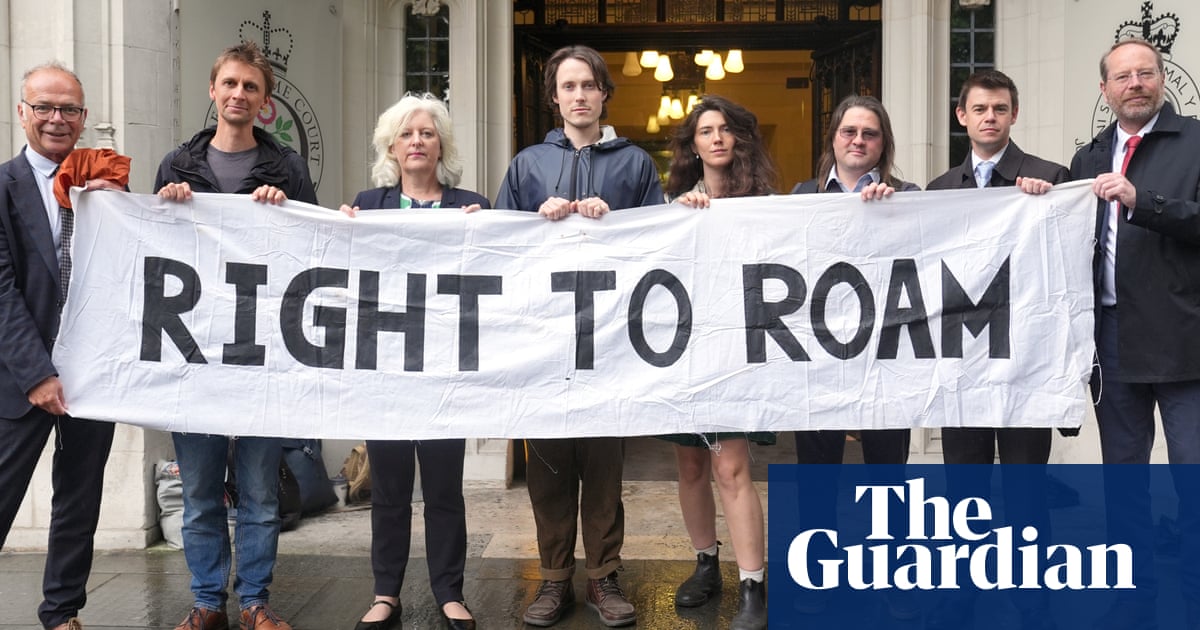Wild camping will be allowed onDartmoorafter the supreme court ruled that a multimillionaire landowner was wrong to ban it on his land.
Dartmoor was – until the legal action – the only place in England where wild camping without the permission of the landowner was enshrined in law. In Scotland, people have enjoyed this right since 2003.
For two years, Alexander Darwall, a multimillionaire hedge fund manager, has been pursuing the matter through the courts against the Dartmoor National Park Authority (DNPA), as he does not want people camping on his land without his permission.
Darwall, Dartmoor’s sixth largest landowner, bought the 1,619-hectare (4,000-acre) Blachford estate on southern Dartmoor in 2013. He offers pheasant shoots, deerstalking and holiday rentals on his land.
He has argued that under the law, he has been unable to remove wild campers from his land and said this has affected his conservation efforts and potentially put his cattle at risk.
The DNPA wants to keep the right for wild camping on Dartmoor and has said it is “absurd” to suggest wild camping causes environmental issues.
In a case that has been keenly followed by land rights campaigners – and campers – across the country, Darwall won in the high court in 2023, but then the appeal court ruled that the law did state there was a right to wild camp on Dartmoor. He then brought his case to the supreme court.
The case has hinged on what the meaning of “open-air recreation” is under the Dartmoor Commons Act 1985. Darwall’s lawyers have sought a very narrow interpretation of this, arguing that walking and horseback riding are the only activities permitted. In what some termed a bizarre turn of events, lawyers for Darwall told the supreme court last year that picnickingdid not countas open-air recreation and was therefore trespass.
Experts including the Open Spaces Society warned the court that agreeing with Darwall’s interpretation of the law would have wide implications for how people enjoyed Dartmoor, potentially prohibiting activities including bathing, sketching, rock climbing, bird watching and fishing.
Since the case was brought,thousands of protestershave flocked to Dartmoor to camp under the stars and argue for their continued right to do so.
After the verdict, campaigners have urged the Labour party to revive plans to legalise the right to roam across England. This waspromised in oppositionbut ditched by the party as it wrote its manifesto last year, after pressure from countryside groups.
Guy Shrubsole from the Right to Roam campaign said: “The verdict is a relief – but Dartmoor remains the only place in England and Wales where the public has a right to wild camp, and can lawfully experience the magic of sleeping under the stars.
“And the fact that one wealthy landowner, Alexander Darwall, was able to temporarily remove a right that belonged to everyone demonstrates how England’s system of access is utterly broken.
“The Labour government must now pass a new right to roam act to defend and extend the public’s rights to access nature in England. Ministers must urgently change the law – not only to protect the right to wild camp on Dartmoor from future challenges, but to expand the public’s right of responsible access to the wider countryside.”
